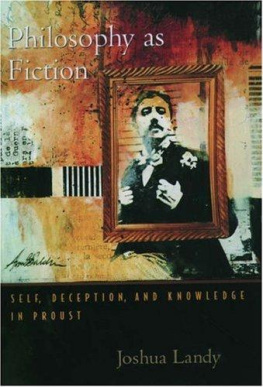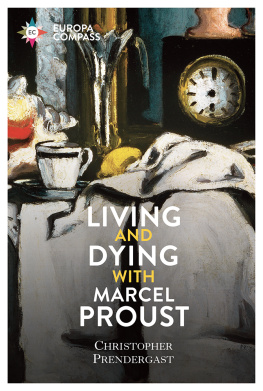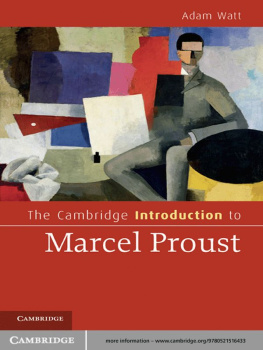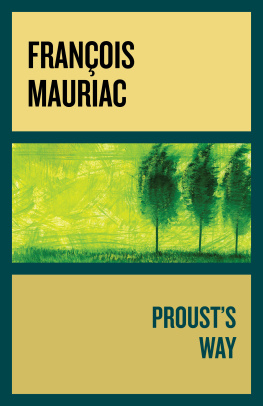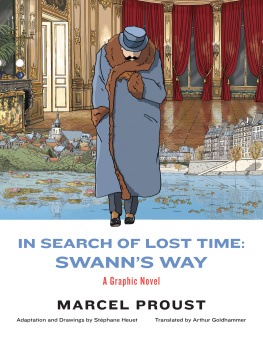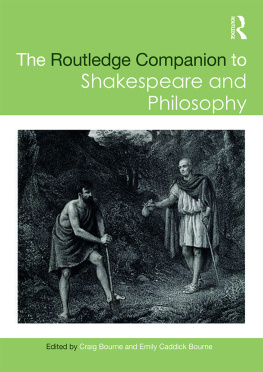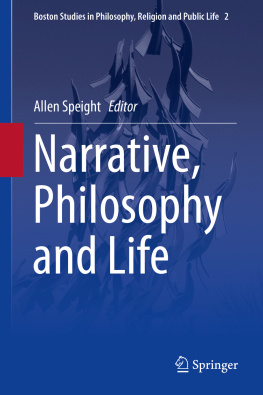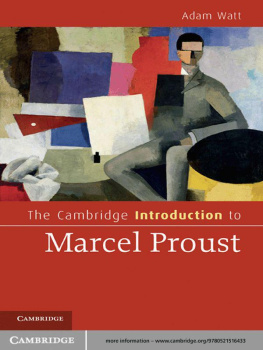Philosophy as Fiction
SELF, DECEPTION, AND
KNOWLEDGE IN PROUST
Joshua Landy






ACKNOWLEDGMENTS
This book is the result of a failure to take two very good pieces of advice: one, hurry up and write a book based on your dissertation; two, don't, under any circumstances, produce a monograph. Having unaccountably made life harder for myself by setting aside the thesis and writing something devoted entirely to Proust, I am all the more indebted to those who have helped me along the way.
Alison Finch must take the credit, or blame, for introducing me to Proust back in 1988. In traditional Cambridge fashion, I had two weeks to read Du cote de chez Swann, think about it (I suppose, to be fair, that thinking was optional), and write an essay for our next tutorial. After one week, I had made it as far as page 72, but had forgotten every word I'd read. After two weeks, I had read 72 pages twice. The tutorial never took place, but I thank Alison for forgiving me, and for all her subsequent encouragement and assistance.
I made it through a little more of the Recherche while a graduate student at Princeton, in the company of Andre Aciman (who understands the paradoxes of jealousy, at what I hope is only a theoretical level) and Brigitte Mahuzier (whose syllabus I still treasure). I benefited too, in various ways, from the advice of my fellow students, notably Margit Dementi, Kasia Jerzak, and Richard Kaye. And my debt to Alexander Nehamas and Thomas Pavel, already considerable then, has continued to grow ever since. They remain models for me of what it is to live the scholarly life.
It is, however, at Stanford that Philosophy as Fiction really began to take shape, and I consider myself blessed to have fallen among such inspiring and magnanimous colleagues. Robert Harrison has been a steadfast mentor and friend, and I am also grateful to him, in his capacity as chair, for granting me a six-month leave to complete the manuscript. (An earlier leave was made possible by the Stanford Humanities Center and its thoughtful director, Keith Baker.) Hans Ulrich Gumbrecht has aided and supported me in ways too numerous to mention-not least by means of his Pindaric advice to "sound like myself"-as well as creating, almost single-handedly, an intellectual environment conducive to literary-philosophical investigations. Marjorie Perloff was kind enough to offer helpful comments on the introduction. And Andrea Nightingale, who sat patiently some years ago while I improvised an outline of chapter 2, has done wonders, in addition, for my overall mental health. All of these senior colleagues have gone out of their way to foster my development, far beyond the call of duty. More, they have made it a sheer delight to be where I am.
Since coming to Stanford, I have twice taught a graduate seminar entitled "Getting through Proust," and have been just as fortunate in my students as I have been in my senior colleagues. I have greatly appreciated discussions with Dustin King about the place of Marcel's project in his life, with Herve Picherit about the potential series of future novels, and with Heather Webb about Albertine's lesbianism; Trina Marmarelli has served as ?not juste consultant; and Matthew Tiews has provided invaluable and extensive editorial assistance at every stage of the process.
My colleagues "across the bay," Robert Alter, Leo Bersani, Carol Cosman, and Karen Feldman, have been charitable enough not to hold it against me that I teach where I do. Michael Lucey and Debarati Sanyal raised extremely important issues when I gave a talk on the Martinville steeples at Berkeley's French department; the discussion of "metonyphor" in chapter i is, I trust, somewhat stronger as a result. From further afield, Robert Pippin, Roger Shattuck, Jean-Yves Tadie (who confirmed a hunch about a certain piece of toast), and Miguel Tamen have supplied excellent suggestions. And in their different ways, Jean-Marie Apostolides, Emma Blake, Malcolm Bowie, Erin Carlston, Julia N. Caskey, Amir Eshel, J. Benjamin Hurlbut, Adrienne Janus, Richard Rorty, Michael T. Saler, and Richard Terdiman have each contributed to this project, as indeed have sundry Landys (Barry, Gertie, and Rosalind). Above all, however, I am beholden to my friend, colleague, team teacher, coauthor, and general partner-in-crime R. Lanier Anderson: the reciprocal influence can be felt on almost every page.
Versions of chapter 2, chapter 3, and the coda appeared in Philosophy and Literature, New Literary History, and the Cambridge Companion to Proust, respectively. I am grateful to Johns Hopkins University Press and to Cambridge University Press for permission to reproduce those writings, and to Denis Dutton, Nancy Easterlin, Ralph Cohen, and Richard Bales for their generosity and sage advice. Thanks also to Meir Sternberg at Poetics Today and to my infinitely gracious editor at Oxford, Elissa Morris.
CONTENTS
Ix
Chapter 51
Chapter 85
III
III
ABBREVIATIONS
Proust
















(Translations from Corr., EA, and PM, as well as from Chroniques and the Carnet de i qo8, are my own.)
Nietzsche


